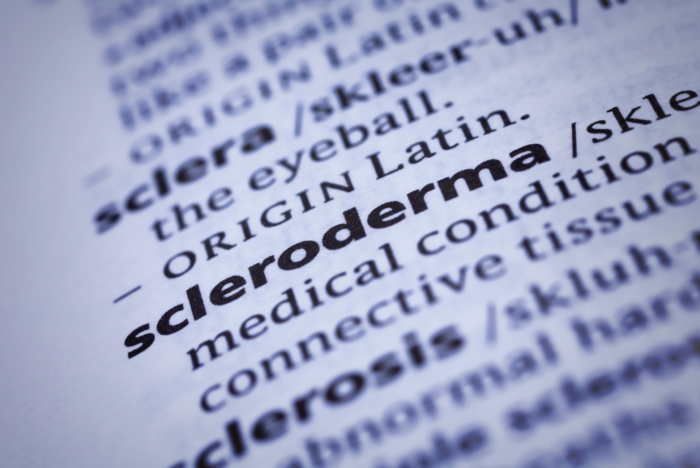The Impact of Scleroderma on Musculoskeletal System

According to the Scleroderma Foundation, approximately 300,000 Americans have scleroderma, with one-third experiencing significant musculoskeletal symptoms. Scleroderma, a rare and complex autoimmune disease, profoundly affects the body, often targeting the skin, internal organs, and the musculoskeletal system. Understanding its impact on the musculoskeletal system is crucial for managing symptoms and improving the quality of life for those affected.
What is Scleroderma?
Scleroderma, meaning "hard skin," is characterized by the overproduction and accumulation of collagen in the body's tissues. This leads to skin thickening and can affect internal organs and the musculoskeletal system. The disease varies widely in its manifestations, making diagnosis and treatment challenging.
Types of Scleroderma
Scleroderma is generally classified into two main types:
1. Localized Scleroderma:
This type primarily affects the skin and sometimes the muscles and bones beneath it. It includes conditions like morphea and linear scleroderma.
2. Systemic Scleroderma (Systemic Sclerosis):
This form affects the skin, blood vessels, and internal organs. It is further divided into:
- Limited Cutaneous Systemic Sclerosis: Mainly affects the skin of the face, hands, and feet.
- Diffuse Cutaneous Systemic Sclerosis: Involves more extensive skin areas and a higher likelihood of internal organ involvement.

What are the three Stages of Scleroderma?
Scleroderma progresses through various stages, each affecting the musculoskeletal system differently:
1. Inflammatory Stage:
Characterized by swelling and inflammation of the skin and joints.
2. Fibrotic Stage:
Collagen buildup leads to skin thickening and fibrosis of internal organs and musculoskeletal tissues.
3. Atrophic Stage:
Long-term fibrosis can lead to tissue atrophy, resulting in muscle weakness and joint contractures.
Relation with Musculoskeletal System
Scleroderma's impact on the musculoskeletal system can be profound and includes:
Joint Pain and Stiffness:
Inflammation and fibrosis of the joint tissues lead to pain and decreased mobility.
Muscle Weakness and Atrophy:
Collagen deposition in muscles can cause weakness and wasting.
Tendon Involvement:
Tendons can become inflamed and thickened, resulting in limited movement.
Bone Changes:
In severe cases, scleroderma can lead to bone resorption and deformities.
Managing Scleroderma Symptoms
Managing the musculoskeletal symptoms of scleroderma involves a combination of medical treatments and lifestyle modifications:
Physical Therapy:
Essential for maintaining joint mobility and muscle strength.
Exercise:
Regular, gentle exercises can help reduce stiffness and improve flexibility.
Pain Management:
Medications and alternative therapies like acupuncture can alleviate pain.
Occupational Therapy:
Helps patients adapt to daily activities and maintain independence.
Treatment of Scleroderma
While there is no cure for scleroderma, several treatments can help manage symptoms and slow disease progression:
Medications:
Immunosuppressants, anti-inflammatory drugs, and vasodilators are commonly used.
Surgery:
In severe cases, surgical intervention may be necessary to release contractures or repair damage.
Lifestyle Changes:
A balanced diet, avoiding smoking, and protecting the skin from cold can help manage symptoms.
Scleroderma poses significant challenges, especially concerning the musculoskeletal system. Early diagnosis and a comprehensive treatment plan tailored to individual needs are crucial for managing the disease effectively. Through a combination of medical treatments, physical therapy, and lifestyle modifications, patients can improve their quality of life.
FirstChoice Rheumatology: Commitment to Patient Well-Being and Expertise
At FirstChoice Rheumatology, we are dedicated to providing exceptional care for patients with scleroderma and other rheumatologic conditions. Our team of experienced specialists is committed to improving patient outcomes through personalized treatment plans, advanced diagnostic techniques, and ongoing support. We believe in a holistic approach to care, ensuring that every patient receives the attention and expertise they deserve. Your well-being is our priority, and we are here to guide you through every step of your journey with scleroderma. Get in touch with us.
About Dr. Shalene Badhan

When it comes to managing rheumatologic conditions, empathy is as crucial as expertise. Dr. Shalene Badhan, our lead Rheumatologist and an Internal Medicine specialist, embodies both. Having been diagnosed with psoriasis and psoriatic arthritis herself, Dr. Badhan brings a unique perspective to her practice, combining professional excellence with personal insight. Her journey through diagnosis, treatment, and daily management of autoimmune diseases allows her to connect with her patients on a profound level, offering not just medical advice but also understanding and solidarity.

